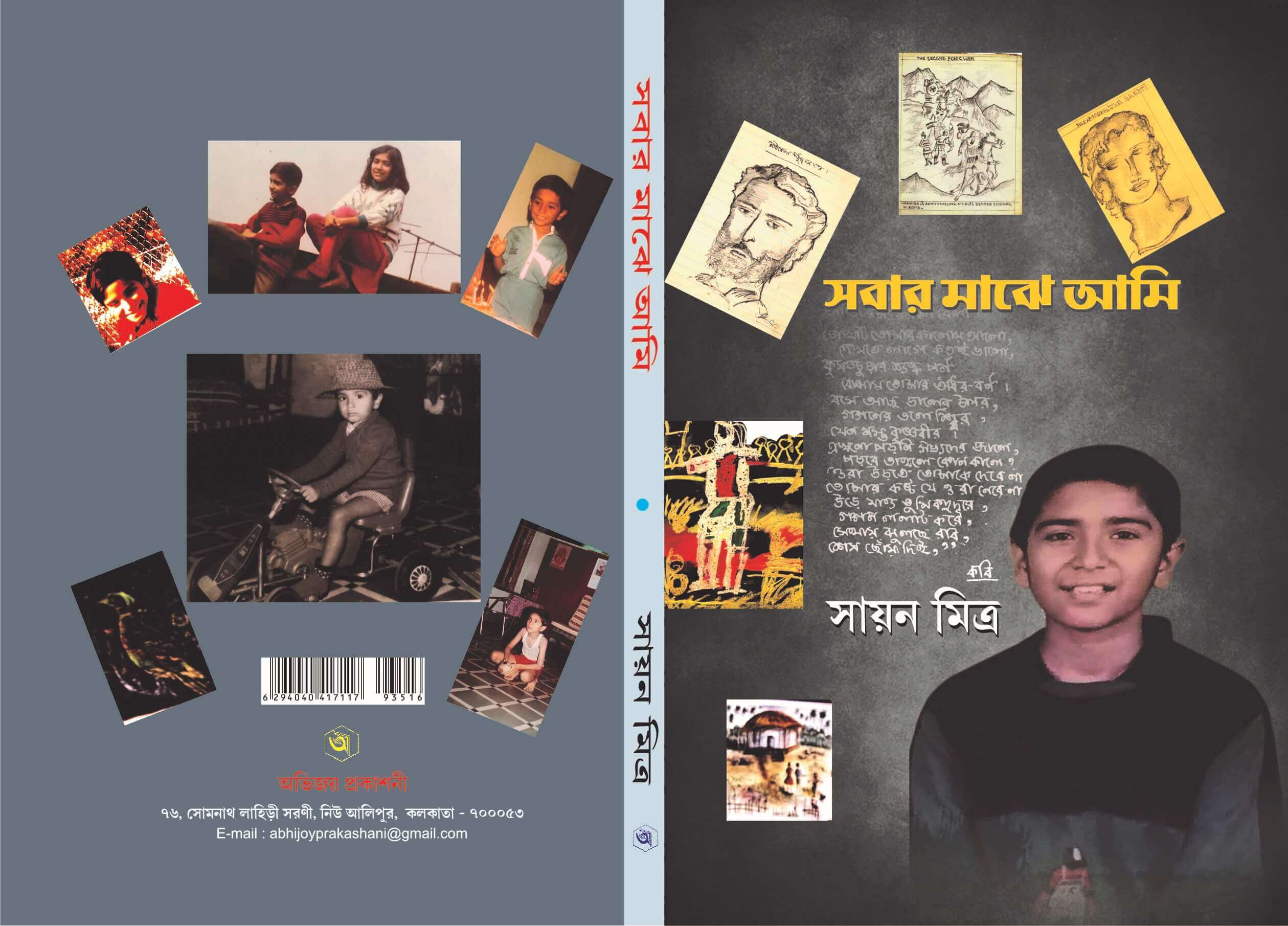Reading Time: 4 minutes
Lopa reviews, Sabar Majhe Ami, a Bengali collection of prose and poems by a child prodigy Sayan Mitra, whose sensitive literary pieces were published posthumously. An exclusive for Different Truths.
How does one eulogize a tender-hearted poet and an intellectual child who lived the scanty 12 years of his life amid his family and circle of friends, nurturing his consciousness with poetry and lush prose, with art as a chosen tool of his dissent? How does one spread word about the brutally honest, yet beautiful world of words and images he wove in vernacular Bengali, his mother tongue, when all he wanted and asked for within his small life span was a secular, humanist society, devoid of divisive politics, replete with kindness and love?
Sayan Mitra, the beautiful wordsmith of Kolkata (16th February 1983-5th February 1995) had created a veritable assortment of poetry, short essays and sketches that encompassed a unique concoction of human emotions ranging from life to death, in context of the turbulent socio-political times of the 1990’s.
Sayan Mitra, the beautiful wordsmith of Kolkata (16th February 1983-5th February 1995) had created a veritable assortment of poetry, short essays and sketches that encompassed a unique concoction of human emotions ranging from life to death, in context of the turbulent socio-political times of the 1990’s. Following his untimely tragic demise 25 years ago, a posthumous collection of his poetry, essays in Bengali, titled ‘Sabar Majhe Ami’ (I, Along with Others) was published by none other than the award-winning, ace poet of Bengal Subhash Mukhopadhyay, with due support and assistance of his family.
Twenty-five years later, the 4th edition of the same book has been published by Abhijoy Prakashani, Kolkata on the occasion of the 44th Kolkata International Book Fair 2020. What would have been a more apt eulogy to the young poet, reminding us that the legacy of his words, his dissent and his art will live on amidst us, residing in a strife-ridden world where we are all chained by the demons of power, politics and merciless bigotry? What would have been a better tribute to the young poet who aspired to rise above all these human shackles?
The first thought that comes to the mind when one flips through the pages of seamlessly woven poetry and prose is the untainted, guileless child mind of Sayan that celebrates various tidbits of life through his writings. But as one reads deeper, in between the lines, he is acquainted with his sharp wit, his intelligence and his unmistakably sensitive psyche which is reflected through his creative outpourings. Like the young poet of Bengal Sukanta Bhattacharya, famously remembered as a revolutionary soul, Sayan’s verses evoke strong, ardent emotions, whether it is his poems on childhood or the city of Kolkata, or it is his symbolic pieces on the political unrest of India. Through the images and metaphors that he depicted, centered on the sights, smells, touch, beauty and essence of life around him, poet Subhash Mukhopadhyay says in his foreword, he had actually made the world his own nucleus.
Like the young poet of Bengal Sukanta Bhattacharya, famously remembered as a revolutionary soul, Sayan’s verses evoke strong, ardent emotions, whether it is his poems on childhood or the city of Kolkata, or it is his symbolic pieces on the political unrest of India.
Sayed Mustafa Siraj, noted author of Bengal wrote in his blurb of the book: “Sayan had the sensitive eye, the gift of the gab, but most importantly, the myriad ugly facets of life didn’t escape his lens, even at such a young, tender age.”
His potent words aptly sum up the strength of Sayan’s poetic vision which had bloomed in his tender scribbles. When I had a chance to browse through the pages of this beautiful collection Sabar Majhe Ami, gifted to me by Sayan’s sister Saheli Mitra, the sheer power of his words sprung from the pages and seeped into my consciousness, reminding me of these powerful lines by Thomas Gray: “Poetry is thoughts that breathe, and words that burn.”
Truly speaking, the thoughts of this young, yet consummate poet breathed in the reader’s mind through the decades of his passing. They breathed and churned new meanings, new introspections
Truly speaking, the thoughts of this young, yet consummate poet breathed in the reader’s mind through the decades of his passing. They breathed and churned new meanings, new introspections, which I hope and pray, will reach more readers worldwide in the days to come.

English translation of Sayan’s poem ‘Manush’ (page No. 26)
Humans
Temples, mosques are two different things,
But humans?
They act out their deeds, with the shield of their religion.
If that is what they are trained to do, what about their education?
Humans are of the same race, meant for creating the world.
We belong to the womb of a single mother.
How would we survive, if humans perish?
Animals kill each other,
Humans kill each other too.
Animals feast on each other’s bodies,
Humans do not.
Is that how they are different?
English translation of Bidrohi (page No. 31). Penned by the poet after listening to a revolutionary song.
The Revolutionary
Do you hear the soft, rustling sound of the air?
My name is embedded in it, scribbled in letters of blood.
I am the sun, the moon and the stars,
I carry the water of this universe.
I am the invincible, unchained revolutionary,
Breaking all shackles with my weapons.
I am the Naxalite, residing amid the hedges, the moss, the open streets.
I wage war with my bow and arrow,
In one hand, I carry my bow, in the other, Arjun’s ‘Gandeeva’.
Photos sourced by the author from Sayan’s family
















